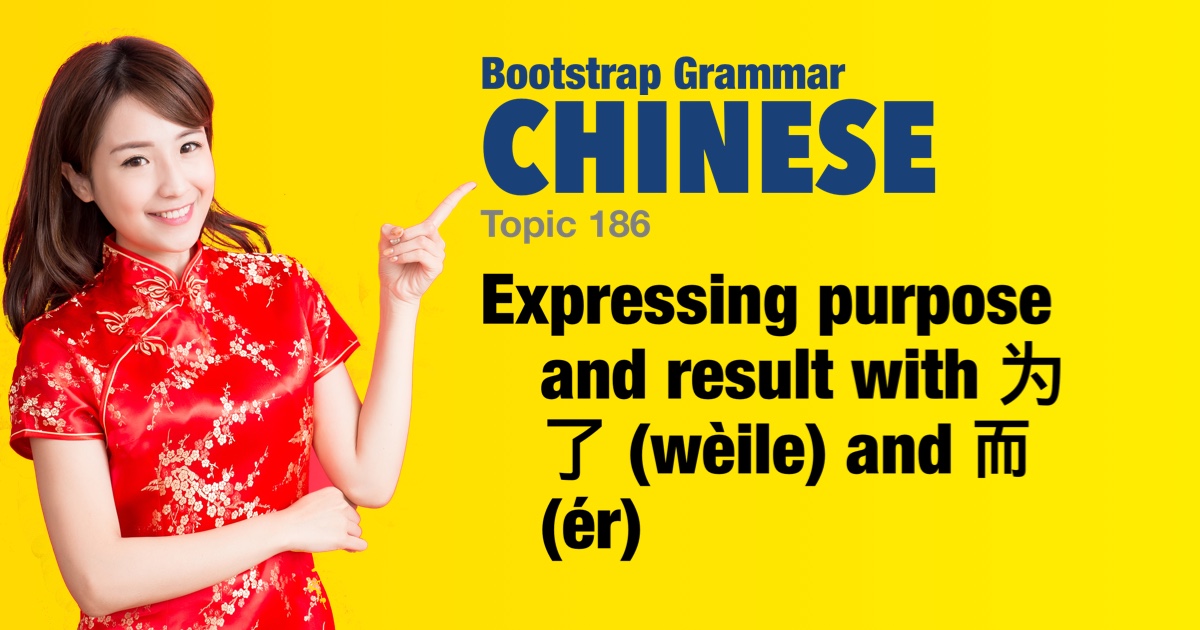Chinese grammar - Expressing purpose and result with 为了 (wèile) and 而 (ér) |
|||
|
|||
In Chinese, the conjunction 而 (ér) is used in conjunction with 为了 (wèile) to emphasize the purpose or result of an action. It is often used to connect two clauses where the first clause describes the purpose and the second describes the result. The structure is: 为了 + [purpose] 而 + [result]. |
| Examples: | |
|
他为了学好中文而每天练习几个小时。
tā wèile xué#hǎo zhōngwén ér měitiān liànxí jǐ#ge xiǎoshí. He studies Chinese every day for several hours in order to master it.
|
|
|
我们为了完成项目而加班到深夜。
wǒmen wèile wánchéng xiàngmù ér jiābān dào shēnyè. We worked overtime until late at night to complete the project.
|
|
|
她为了保持健康而每天早上去跑步。
tā wèile bǎochí jiànkāng ér měitiān zǎoshang qù pǎobù. She runs every morning to stay healthy. |
|
|
他们为了提高团队合作能力而组织了这个活动。
tāmen wèile tígāo tuánduì hézuò nénglì ér zǔzhī le zhè#ge huódòng. They organized this event to improve team collaboration skills.
|
|
|
我为了准备考试而最近一直在复习。
wǒ wèile zhǔnbèi kǎoshì ér zuìjìn yìzhí zài fùxí. I've been reviewing constantly lately to prepare for the exam.
|
|
|
她为了找到好工作而决定去读研究生。
tā wèile zhǎodào hǎo#gōngzuò ér juédìng qù dú yánjiūshēng. She decided to pursue graduate studies to get a good job.
|
|
|
我为了提升自己的语言能力而每天跟朋友们一起练习说话。
wǒ wèile tíshēng zìjǐ#de yǔyán nénglì ér měitiān gēn péngyǒumen yìqǐ liànxí shuōhuà. I practice speaking with my friends every day to improve my language skills.
|
|
|
我们为了减少浪费而采取了节能措施。
wǒmen wèile jiǎnshǎo làngfèi ér cǎiqǔ le jiénéng cuòshī. We implemented energy-saving measures to reduce waste.
|
|
|
他为了实现梦想而努力工作和学习。
tā wèile shíxiàn mèngxiǎng ér nǔlì gōngzuò hé xuéxí. He works and studies hard to achieve his dreams. |
|
|
我们为了达到目标而不断改进我们的方法。
wǒmen wèile dádào mùbiāo ér búduàn gǎijìn wǒmen de fāngfǎ. We continuously improve our methods to achieve our goals.
|
|
 |
|



